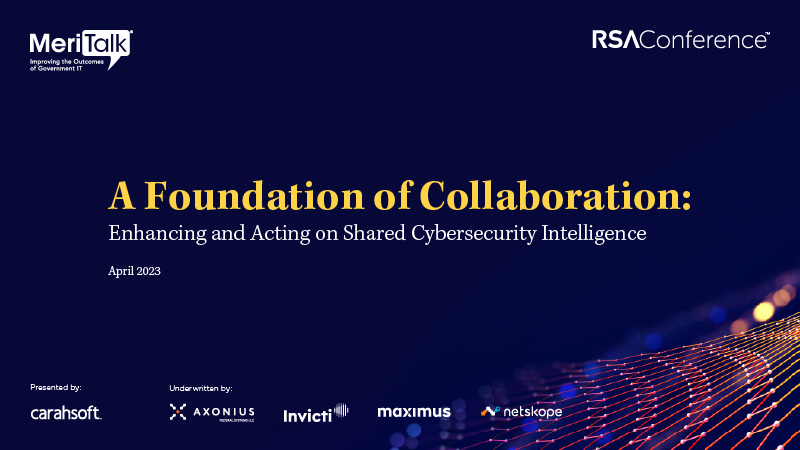
After years of working out the kinks, government and the private sector are reaping the benefits of close collaboration on cybersecurity intelligence sharing and bolstering collective defense in the process, new research from RSA Conference and MeriTalk shows.
The research findings are clear: the long-advocated “buddy system” approach to sharing cyber threat and related data works, and works well.
The RSA Conference/MeriTalk research – which gathers input from 100 Federal and 100 private sector cybersecurity decision makers – finds that 90 percent of those view public-private partnerships as a “force multiplier” in cyber resilience. That view is shared slightly more by larger organizations – which often have more established security operations – versus smaller ones who often have less to work with.
Below that top-line finding, the research finds improvement in a vital category that has been subject to complaints from both sides of the equation for the past decade. More than half of those surveyed agreed that the volume and value of the intelligence shared has gotten better.
And nearly half said that value of shared intelligence has passed perhaps the most important test of all: 47 percent of the organizations have used the data to respond proactively to a cyber threat.
The Federal government’s primary cybersecurity agency – the Cybersecurity and Infrastructure Security Agency (CISA) – won plaudits from cyber experts surveyed, who agreed overall that Federal government agencies are the best sources for “trusted and actionable” cyber intelligence.
Despite that good news, the RSA Conference/MeriTalk research also shows there is plenty more to do to make the public-private collaborations on cybersecurity more effective. Among those are:
- Use the relationships more; 71 percent of those surveyed said their organizations need to step up with both sharing intelligence, and acting on it;
- A lack of training, trust, resources, and specific information sharing requirements.
On the policy front, the decision makers surveyed said government organizations need to make progress on data centralization, strategy planning, and creating better resources for small and medium-sized organizations.
On the flip side, smaller organizations want to see a strategic plan for coordinated threat response, medium-sized entities want a centralized repository of shared cyber intelligence, and the largest organizations are hoping for faster data delivery.
Check out all of the findings and recommendations by downloading the complete research report.
